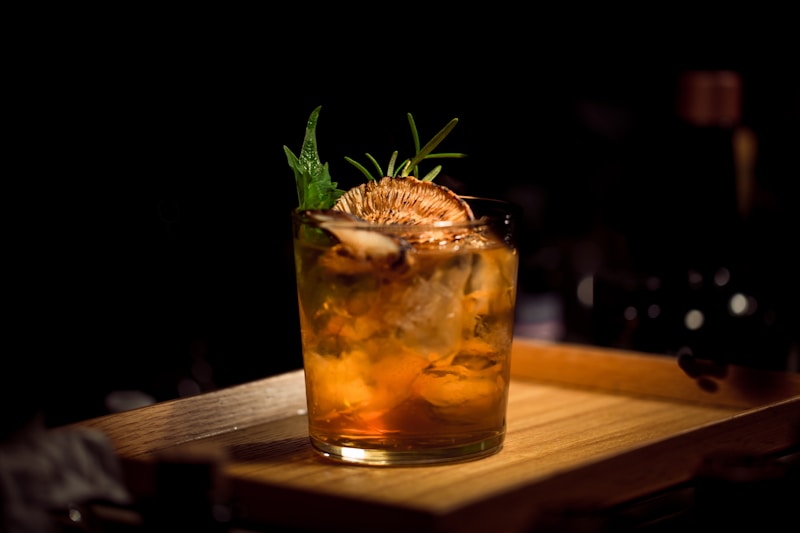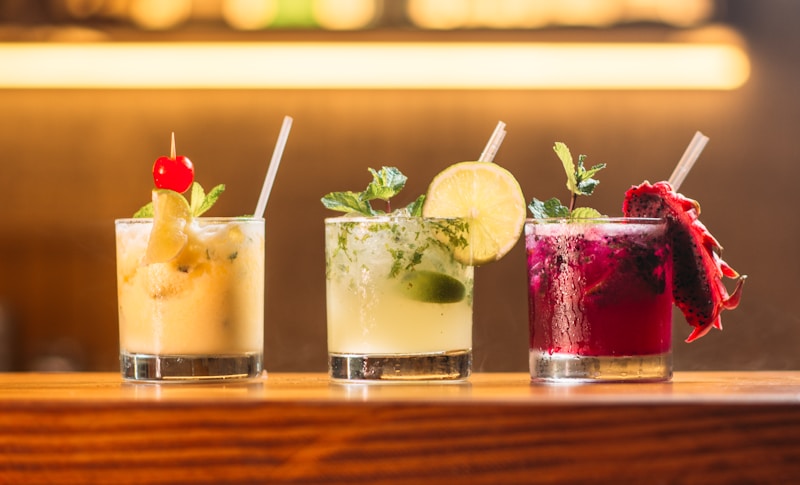In this comprehensive guide, we’ll cover everything about Ranch Water: its fascinating origin story, the science behind why it’s so diet-friendly, the best tequilas to use, variations that won’t break your carb budget, and even how to batch it for parties. By the end, you’ll be a Ranch Water expert.
The Origins of Ranch Water: A West Texas Legend

The exact origins of Ranch Water are debated, but all stories point to West Texas—specifically the Big Bend region and towns like Marfa, Alpine, and Fort Davis. This rugged, desert landscape near the Mexican border has a ranching culture that goes back generations, and the drink seems to have emerged from that world.
The Legend of the Gage Hotel
The most commonly cited origin story credits the Gage Hotel in Marathon, Texas. This historic hotel, originally built in 1927 as headquarters for a 500,000-acre ranch, claims to have been serving Ranch Water since at least the 1990s. Local ranchers would come in after long days working cattle and order tequila with lime and Topo Chico—a simple, refreshing drink that cut through the desert heat.
The name itself likely comes from this ranching heritage. “Ranch water” could refer to the mineral water that ranchers would drink, or it could be a play on the drink being what ranchers (rather than city folk) would order.
The Topo Chico Connection
Topo Chico mineral water, bottled in Monterrey, Mexico since 1895, has been a staple in Texas border culture for over a century. The mineral water’s distinctive effervescence—more aggressive than most sparkling waters—makes it perfect for cocktails. Its cult following in Texas predates the Ranch Water craze; Texans have been mixing it with everything for decades.
The mineral content of Topo Chico gives Ranch Water a slightly different mouthfeel than you’d get from plain sparkling water. Some bartenders and Ranch Water purists insist that substituting regular sparkling water fundamentally changes the drink—though for diet purposes, any unflavored sparkling water will do.
From Regional Secret to National Trend
For years, Ranch Water remained a West Texas secret. Visitors to Marfa or Big Bend might discover it, but it rarely traveled beyond the region. That changed around 2018-2019 when the drink began appearing at trendy bars in Austin, Dallas, and Houston.
The timing was perfect. The keto diet was peaking in popularity, hard seltzers were exploding, and health-conscious drinkers were desperately seeking low-carb cocktail options. Ranch Water fit the bill perfectly: it had the refreshment of a hard seltzer, the sophistication of a proper cocktail, and the Texas mystique that made it Instagrammable.
By 2020, Ranch Water had gone fully mainstream. National publications from Bon Appétit to The New York Times were covering it. Major brands launched canned versions. And bars from coast to coast added it to their menus.
The Nutritional Profile: Why Ranch Water Is Perfect for Dieters

Let’s break down exactly why Ranch Water has become the go-to cocktail for keto dieters, calorie counters, and anyone watching their intake.
The Numbers
| Ingredient | Amount | Calories | Carbs |
|---|---|---|---|
| Tequila (blanco) | 2 oz | 128 | 0g |
| Fresh lime juice | 1 oz | 8 | 2.5g |
| Topo Chico/Sparkling water | 4 oz | 0 | 0g |
| Total | ~136 | ~2.5g |
Compare this to other popular cocktails:
| Cocktail | Calories | Carbs |
|---|---|---|
| Ranch Water | 136 | 2.5g |
| Margarita (traditional) | 280-400 | 30-40g |
| Frozen Margarita | 350-500 | 40-60g |
| Mojito | 220-280 | 20-30g |
| Piña Colada | 500-650 | 60-80g |
| Long Island Iced Tea | 300-400 | 25-35g |
Ranch Water delivers comparable alcohol content to these cocktails while cutting carbs by 90% or more. For someone on a 20g daily carb limit, a traditional margarita would consume their entire carb budget—while they could have 8 Ranch Waters and stay within limits.
Why Tequila Is Diet-Friendly
All pure distilled spirits (vodka, gin, rum, whiskey, tequila) contain zero carbohydrates. During distillation, the alcohol evaporates and is collected, leaving sugars behind. This makes spirits the base of virtually all keto-friendly cocktails.
Tequila specifically has some claimed additional benefits, though the science is mixed:
- Agavins: Some research suggests agavins (sugars from the agave plant) may have prebiotic properties and don’t spike blood sugar. However, most agavins are converted to alcohol during fermentation, so the amount in finished tequila is minimal.
- Lower congeners: Blanco tequila has fewer congeners (fermentation byproducts) than aged spirits, which some studies link to less severe hangovers.
- 100% agave: Look for tequila labeled “100% de agave” or “100% agave”—these contain no added sugars or fillers.
The Lime Factor
Fresh lime juice is the only significant source of carbs in Ranch Water. At about 2.5g per ounce, it’s still negligible compared to the simple syrup or mixers in most cocktails. Some ultra-strict dieters reduce the lime juice to half an ounce, but this noticeably affects the flavor balance.
The Perfect Ranch Water Recipe

Classic Ranch Water
Ingredients:
- 2 oz tequila blanco (100% agave)
- 1 oz fresh lime juice (about 1 lime)
- 4-5 oz Topo Chico mineral water
- Ice
- Lime wheel or wedge for garnish
Instructions:
- Fill a highball glass with ice
- Add tequila and fresh lime juice
- Top with Topo Chico
- Stir gently (don’t over-stir or you’ll lose carbonation)
- Garnish with lime wheel
Pro Tips:
- Use fresh lime juice—bottled just doesn’t compare
- Chill your glass beforehand for maximum refreshment
- Add the sparkling water last and stir gently to preserve fizz
- Use plenty of ice—this is a drink meant to be cold
The Best Tequilas for Ranch Water
Ranch Water calls for tequila blanco (also called silver or plata)—unaged tequila that’s bottled immediately after distillation. The clean, agave-forward flavor profiles of blanco tequilas complement the simplicity of the drink better than aged varieties.
Budget Options (Under $25)
Olmeca Altos Plata – Excellent value at around $20. Clean, citrusy profile that works perfectly in Ranch Water. Made from 100% blue agave in the highlands of Jalisco.
Espolòn Blanco – Another solid budget option at $20-25. Slightly peppery with good agave flavor. Widely available.
Cimarron Blanco – Around $20, this is a bartender favorite for mixing. Clean and straightforward.
Mid-Range Options ($25-40)
Fortaleza Blanco – Around $40. Made using traditional tahona (stone wheel) crushing methods. More complex and flavorful than most. Many consider this the gold standard for blanco tequila.
Siete Leguas Blanco – About $35. Another traditionally made tequila with excellent agave character. Rich and slightly sweet.
Tequila Ocho Plata – Around $40. Single-estate tequila that changes slightly each year based on growing conditions. Complex and interesting.
Premium Options ($40+)
Casa Dragones Blanco – Around $75. Exceptionally smooth with subtle agave and citrus notes. Perhaps too refined for mixing, but makes an elevated Ranch Water.
Don Julio Blanco – About $45. Clean, crisp, and versatile. A solid choice that’s widely available.
Our Recommendation
For everyday Ranch Waters, Olmeca Altos Plata or Espolòn Blanco offer the best value. For special occasions or when you want to taste more of the tequila, upgrade to Fortaleza Blanco.
Ranch Water Variations
Once you’ve mastered the classic, try these variations that maintain the low-carb profile:
Spicy Ranch Water
Add a few slices of fresh jalapeño or serrano pepper to your glass before adding other ingredients. Let it sit for a minute to release heat. For more consistent spice, muddle 2-3 slices at the bottom of the glass.
Nutrition: Adds negligible calories/carbs
Mezcal Ranch Water (Smoky Ranch Water)
Substitute mezcal for tequila. The smoky flavor transforms the drink into something more complex and interesting. Use a lighter, less smoky mezcal like Del Maguey Vida rather than intensely smoky expressions.
Nutrition: Same as regular Ranch Water
Grapefruit Ranch Water
Add 1 oz fresh grapefruit juice alongside the lime juice. This creates something closer to a Paloma but maintains the Ranch Water’s sparkling water base.
Nutrition: Adds ~8 calories and ~2g carbs
Cucumber Ranch Water
Muddle 3-4 cucumber slices at the bottom of your glass before adding other ingredients. Adds a refreshing, spa-like quality without significant carbs.
Nutrition: Adds negligible calories/carbs
Herbaceous Ranch Water
Add fresh herbs like mint, basil, or cilantro. Lightly muddle to release oils without pulverizing the leaves.
Nutrition: Adds negligible calories/carbs
Ranch Water with Salt Rim
Rim your glass with Tajín (chili-lime salt) or regular salt. Run a lime wedge around the rim and dip in salt. Adds zero calories/carbs and enhances the flavor.
Canned Ranch Water: Convenience vs. Quality
The Ranch Water craze has spawned numerous canned versions. Here’s how the major options compare:
Lone River Ranch Water
The first major canned Ranch Water, launched in 2019.
- Calories: 130 per 12 oz can
- Carbs: 4g
- ABV: 4%
- Note: Made with organic agave nectar, not tequila (due to regulations)
Topo Chico Ranch Water Hard Seltzer
Coca-Cola/Molson Coors entry using the Topo Chico brand.
- Calories: 100 per 12 oz can
- Carbs: 2g
- ABV: 4.7%
- Note: Not made with actual tequila
Dos Equis Ranch Water
From the beer brand, positioned as a “cerveza preparada.”
- Calories: 130 per 12 oz can
- Carbs: 4g
- ABV: 4.5%
Cutwater Tequila Ranch Water
One of the few made with actual tequila.
- Calories: 100 per 12 oz can
- Carbs: 5g
- ABV: 5.9%
- Note: Uses real tequila, slightly higher carbs from added sweeteners
The Verdict on Canned Options
Canned Ranch Waters are convenient for pool parties, camping, or situations where mixing isn’t practical. However, most aren’t made with actual tequila (regulations prohibit calling something “tequila” unless it’s made in specific Mexican regions). The taste difference is noticeable.
For home consumption or when you want the authentic experience, making your own is vastly superior and barely more effort. Save the cans for tailgating.
Batching Ranch Water for Parties
Hosting a party? Here’s how to batch Ranch Water efficiently:
Ranch Water Pitcher (Serves 6-8)
Ingredients:
- 12 oz (1.5 cups) tequila blanco
- 6 oz (3/4 cup) fresh lime juice
- 1 liter Topo Chico (add just before serving)
- Lime wheels for garnish
- Ice
Instructions:
- Combine tequila and lime juice in a large pitcher
- Refrigerate until ready to serve (can be made hours ahead)
- Just before serving, add ice and Topo Chico
- Stir gently and serve immediately
- Garnish individual glasses with lime wheels
Critical tip: Don’t add the sparkling water until you’re ready to serve, or it will go flat.
Ranch Water Bar Setup
For larger gatherings, set up a “make your own Ranch Water” bar:
- 2-3 bottles of tequila blanco
- Fresh limes, halved, with a citrus press
- Multiple bottles of Topo Chico on ice
- Highball glasses
- Ice bucket
- Optional: Jalapeño slices, Tajín, fresh herbs for customization
Common Mistakes to Avoid
1. Using Bottled Lime Juice
Fresh lime juice makes an enormous difference. Bottled lime juice has a cooked, bitter taste that ruins the drink. If you’re too lazy to squeeze limes, at least use the small bottles of cold-pressed lime juice from the refrigerated section—never the shelf-stable stuff.
2. Using Aged Tequila
Reposado and añejo tequilas have flavor profiles (vanilla, caramel, oak) that clash with Ranch Water’s intended simplicity. Stick to blanco for this drink. Save your aged tequila for sipping.
3. Using Mixto Tequila
If the label doesn’t say “100% agave,” it’s mixto—a blend of agave and other sugars. Mixto tequilas have harsher flavors and are more likely to cause hangovers. Always choose 100% agave.
4. Over-stirring
One gentle stir is enough. Vigorous stirring releases the carbonation, and you end up with flat Ranch Water—which defeats half the purpose.
5. Skimping on Ice
Ranch Water should be cold and refreshing. Use plenty of ice. A warm Ranch Water is a sad Ranch Water.
The Cultural Significance
Ranch Water represents something larger than just a low-carb cocktail trend. It’s a piece of Texas culture that’s gone national—a drink rooted in authentic regional tradition rather than invented by a marketing team.
The drink embodies a certain Texas ethos: simple, unpretentious, effective. It doesn’t need fancy ingredients or complicated techniques. It’s just good tequila, fresh lime, and sparkling water—ingredients that have been available in West Texas for generations.
In an era of craft cocktails with 12 ingredients and molecular gastronomy techniques, Ranch Water is refreshingly straightforward. It proves that sometimes the best drinks are the simplest ones.
Conclusion
Ranch Water deserves its reputation as the ultimate low-carb cocktail. At roughly 136 calories and 2.5g carbs, it delivers refreshment and sophistication without the nutritional penalty of most mixed drinks. The simple recipe means you can make it anywhere with minimal equipment—no shaker, no muddler, no complicated techniques.
Whether you’re strictly keto, generally watching carbs, or just appreciate a clean, refreshing cocktail, Ranch Water should be in your regular rotation. Stock up on good blanco tequila, keep limes and Topo Chico on hand, and you’re always ready to make one of the best drinks out there.
Use our DrinkLeader database to compare Ranch Water with other cocktails and make informed choices about what you drink. Here’s to smarter sipping!
Nutritional calculations based on standard ingredients. Individual variations may occur based on specific products and preparation methods.
]]>